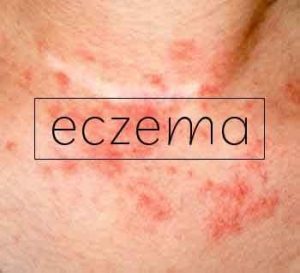- Home
- Editorial
- News
- Practice Guidelines
- Anesthesiology Guidelines
- Cancer Guidelines
- Cardiac Sciences Guidelines
- Critical Care Guidelines
- Dentistry Guidelines
- Dermatology Guidelines
- Diabetes and Endo Guidelines
- Diagnostics Guidelines
- ENT Guidelines
- Featured Practice Guidelines
- Gastroenterology Guidelines
- Geriatrics Guidelines
- Medicine Guidelines
- Nephrology Guidelines
- Neurosciences Guidelines
- Obs and Gynae Guidelines
- Ophthalmology Guidelines
- Orthopaedics Guidelines
- Paediatrics Guidelines
- Psychiatry Guidelines
- Pulmonology Guidelines
- Radiology Guidelines
- Surgery Guidelines
- Urology Guidelines
No clinical benefit of Bath additives in child eczema : BMJ

No evidence of clinical benefit from including emollient bath additives in the standard management of eczema in children finds a recent study.
Childhood eczema (also known as atopic eczema or atopic dermatitis) is a common condition that can have a substantial impact on quality of life for children and their families. Guidelines suggest that complete emollient therapy forms the mainstay of treatment for eczema and should be used regularly with topical corticosteroids or topical calcineurin inhibitors, used in addition to flare-ups.
Miriam Santer et.al at the University of Southampton conducted a study to determine both the clinical and cost effectiveness of including emollient bath additives in the management of eczema in children.
The research design was Pragmatic randomized open-label superiority trial with two parallel groups. The study involved 483 children aged 1 to 11 years, with atopic dermatitis. Children with very mild eczema and children who bathed less than once weekly were excluded.
Participants in the intervention group were prescribed emollient bath additives to be used regularly for 12 months. The control group was asked to use no bath additives for 12 months. Both groups continued with standard eczema management, including leave-on emollients, and caregivers were given standardized advice on how to wash participants.
Eczema control was measured weekly for 16 weeks using the patient-oriented eczema measure (POEM, scores 0-7 mild, 8-16 moderate, 17-28 severe).
The researchers found no statistically significant difference in weekly POEM scores between the two groups over the 16 week period (mean POEM score of 7.5 in the bath additives group and 8.4 in the no bath additives group).
After taking account of eczema severity and other factors that could have affected the results, the POEM score in the no bath additives group was 0.41 points higher than in the bath additives group over 16 weeks, which is substantially lower than the minimal clinically important difference for POEM of 3 points.
Carsten Flohr, Head, Unit for Population-Based Dermatology Research says: "Important remaining evidence gaps are optimal regimen for leave-on treatments, soap substitutes, and frequency of bathing in children with eczema."
So there is still some room for further work, "but it is heartening to see that an important evidence gap has been closed," he concludes.
However there was a possibility of a small benefit among children bathing more than five times a week or among children aged less than 5 years, but according to the researchers, differences are sufficiently small to be clinically useful.
The study concluded that no evidence of clinical benefit from including emollient bath additives in the standard management of eczema in children. Further research is needed into optimal regimens for leave-on emollient and soap substitutes study was published in the journal The BMJ
For more information log on to the journal

Disclaimer: This site is primarily intended for healthcare professionals. Any content/information on this website does not replace the advice of medical and/or health professionals and should not be construed as medical/diagnostic advice/endorsement or prescription. Use of this site is subject to our terms of use, privacy policy, advertisement policy. © 2020 Minerva Medical Treatment Pvt Ltd